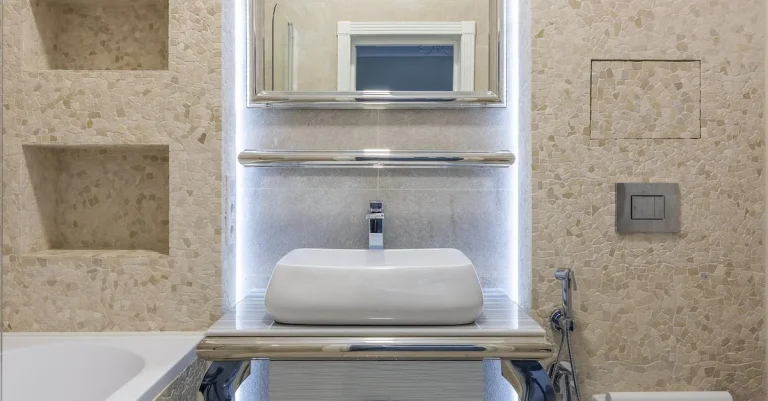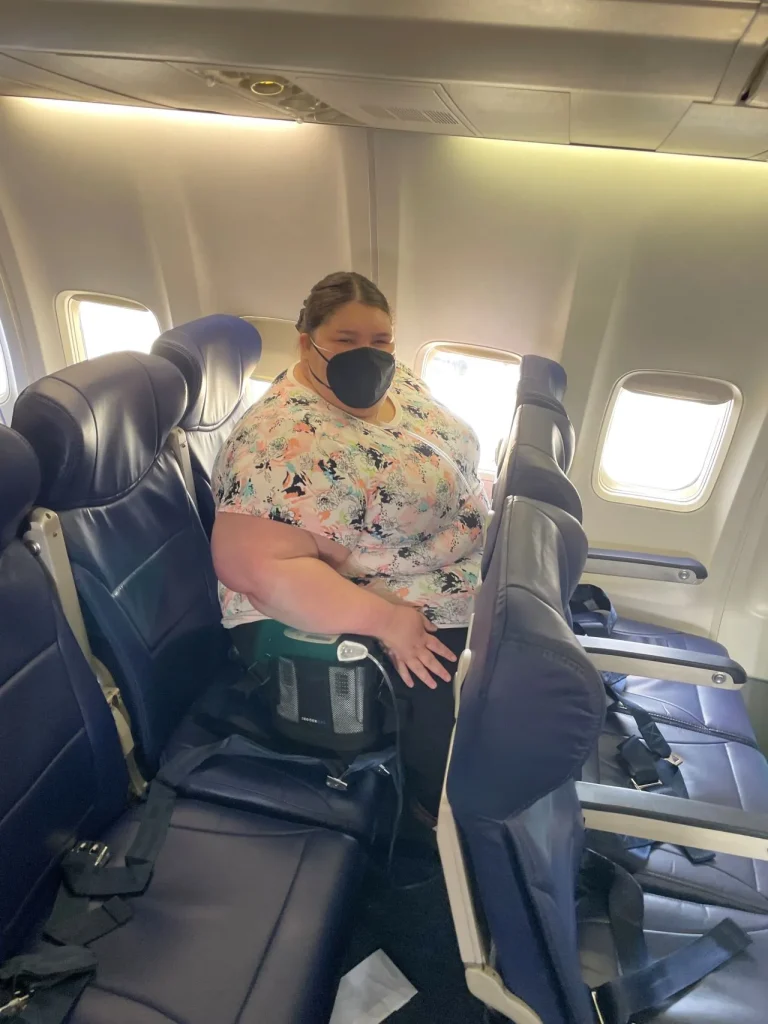Are you planning a solo trip and need to book a hotel room? You may be wondering what the minimum age requirements are for getting a room. Age policies can vary between hotel chains.
If you’re short on time, here’s a quick answer to your question: In most cases, you need to be at least 18 years old to rent a hotel room on your own. Some hotels require guests to be 21 or older.
In this comprehensive guide, we’ll go over hotel minimum age policies, surcharges for younger guests, required IDs and payment methods, as well as tips for booking rooms as a younger traveler.
Typical Minimum Hotel Room Rental Ages
When it comes to renting a hotel room, the minimum age requirement can vary depending on the hotel’s policies and location. However, some common trends can give you a general idea of what to expect. Here are some key points to keep in mind:
Age 18 is Most Common
In most cases, the minimum age to rent a hotel room is 18 years old. This applies to the majority of hotels around the world, especially those in popular tourist destinations.
So if you’re planning a trip and you’re at least 18, you can rest assured that you’ll be able to book a hotel room without any issues.
However, it’s important to note that some hotels may have additional requirements for guests under 21. For example, they might require a credit card in the guest’s name or a cash deposit upon check-in.
These policies are in place to ensure that the hotel is protected in case of any damages or incidentals.
21 or Older Policies at Upscale Hotels
While 18 is the most common minimum age requirement, there are some upscale hotels that have a higher age limit. These hotels often cater to a more mature clientele and want to maintain a certain level of ambiance and decorum.
As a result, they may require guests to be 21 years old or older in order to rent a room.
If you’re under 21 and looking to stay at a high-end hotel, don’t worry! There are still plenty of options available to you.
Simply do some research and look for hotels that cater to a younger crowd or have more relaxed age policies.
You can also consider booking through online platforms that specialize in accommodations for travelers under 21.
Under 18 Can Stay With Adult
For travelers under the age of 18, the rules are a bit different. While they may not be able to rent a hotel room on their own, they can typically stay with an adult who is of legal age.
This could be a parent, guardian, or another responsible adult who is willing to take on the responsibility of booking and staying in the room.
It’s always a good idea to check with the specific hotel you plan to stay at to confirm their policies regarding minors.
Some hotels may require a signed consent form from a parent or guardian, while others may have additional restrictions in place.
Remember, these age requirements are in place for a reason. Hotels want to ensure the safety and well-being of their guests, as well as protect their property.
So while it may be frustrating if you’re not yet of legal age, it’s important to respect these policies and find accommodations that are suitable for your needs.
Booking Policies for Younger Guests
When it comes to booking hotel rooms, age restrictions can vary depending on the establishment and location. In 2024, the minimum age to rent a hotel room can range from 18 to 21 years old.
It’s important to note that these policies are in place to ensure the safety and well-being of all guests.
Daily Surcharges May Apply
Some hotels may impose a daily surcharge for guests who are under a certain age. This surcharge is typically added to cover any potential damages or additional services that may be required for younger guests.
It’s always a good idea to check with the specific hotel to see if any surcharges apply and how much they may be.
Maximum Age Differences in Rooms
Hotels may also have policies regarding the maximum age difference allowed between guests in a single room.
This is often put in place to prevent any potential illegal activities or to maintain a comfortable and safe environment for all guests.
For example, a hotel may require that guests under the age of 21 not stay in a room with someone who is significantly older.
Extra Deposits for Young Renters
In some cases, hotels may require an additional deposit from younger renters. This deposit is usually refundable upon check-out, as long as there are no damages or excessive noise complaints.
The extra deposit acts as a form of insurance for the hotel, ensuring that any potential damages or disruptions caused by younger guests can be covered.
It’s important to remember that these policies can vary from hotel to hotel, so it’s always a good idea to check with the specific establishment before making a reservation. Additionally, these policies can change over time, so it’s best to stay updated on the latest requirements.
Required ID and Payment Methods
When it comes to renting a hotel room, there are certain requirements that need to be met, especially regarding identification and payment methods.
These requirements are in place to ensure the safety and security of both the hotel and its guests.
Government-issued Photo ID Proofs Age
One of the primary requirements for renting a hotel room is providing a valid government-issued photo ID.
This is to verify your identity and ensure that you are of the legal age to rent a room. The minimum age requirement can vary depending on the location and hotel policy.
In most places, the minimum age to rent a hotel room is typically 18 or 21 years old.
Credit or Debit Card in Your Name
In addition to a government-issued photo ID, hotels often require guests to provide a credit or debit card in their name for payment and incidental charges.
This is to ensure that the guest has a valid form of payment and can cover any additional expenses during their stay.
It’s important to note that some hotels may not accept prepaid cards or cards that are not in the guest’s name.
Cash or Check Rarely Accepted
While credit or debit cards are the most common method of payment for hotel rooms, cash or check payments are rarely accepted. This is primarily due to security reasons, as cash and checks can be easily lost or stolen.
Additionally, hotels prefer the convenience and efficiency of electronic payment methods. However, it’s always a good idea to check with the specific hotel in case they have any alternative payment options available.
It’s important to remember that these requirements may vary from hotel to hotel and from country to country. Some hotels may have stricter policies in place, especially for guests under a certain age.
It’s always a good idea to check the hotel’s website or contact them directly to inquire about their specific policies regarding identification and payment methods.

Booking Tips for Younger Travelers
Traveling can be an exciting and enriching experience for people of all ages, including younger individuals who are eager to explore the world. However, when it comes to booking hotel rooms, there are certain age restrictions that must be considered.
In this article, we will discuss some helpful tips for younger travelers who are looking to book hotel accommodations.
Call Ahead About Age Policies
Before making a reservation, it is crucial for younger travelers to call ahead and inquire about the hotel’s age policies.
While the minimum age requirement to rent a hotel room can vary from one establishment to another, many hotels require guests to be at least 18 years old.
Some hotels may have even higher age requirements, such as 21 or 25 years old. Therefore, it is essential to clarify the age policy with the hotel directly to avoid any disappointments or setbacks.
Book Through Third-Party Sites
If a hotel has a strict age policy that doesn’t align with a younger traveler’s age, booking through third-party sites can be a viable option.
Certain websites allow individuals under the minimum age requirement to book hotel rooms, provided they meet specific criteria.
These criteria may include having a credit card in their name or being accompanied by an adult over the age requirement.
However, it is important to thoroughly read the terms and conditions of these third-party bookings to ensure compliance with the hotel’s policies.
Travel Off-Peak Season
Another useful tip for younger travelers looking to book hotel rooms is to consider traveling during off-peak seasons. During peak travel periods, hotels may be more stringent with their age policies due to high demand.
However, during off-peak seasons, hotels might be more flexible and willing to accommodate younger guests.
Additionally, traveling during off-peak seasons often means lower room rates and fewer crowds, allowing for a more enjoyable and affordable experience.
Present Yourself Professionally
When booking a hotel room as a younger traveler, it is important to present oneself professionally. This includes dressing appropriately and demonstrating responsible behavior.
By appearing mature and responsible, younger travelers may increase their chances of being granted a room reservation, even if they are below the hotel’s minimum age requirement.
Remember, first impressions matter!
👔 Pro tip: It is always a good idea to have a valid form of identification, such as a driver’s license or passport, readily available when checking into a hotel.
Alternatives to Hotels for Under 18
While hotels are a popular choice for travelers, individuals under 18 may face restrictions when it comes to renting a hotel room. However, there are several alternative options that can provide accommodation for young travelers.
Hostels
Hostels are a great option for young travelers as they often have more lenient age restrictions compared to hotels.
Many hostels allow individuals under 18 to stay as long as they have parental consent or are accompanied by an adult guardian.
Hostels are known for their communal atmosphere, making them a perfect choice for solo travelers looking to meet new people and make friends from around the world.
Additionally, hostels tend to be more affordable than hotels, making them an attractive option for budget-conscious travelers.
Campgrounds
Campgrounds provide a unique and adventurous accommodation option for young travelers. While some campgrounds may have age restrictions, many allow individuals under 18 to stay with parental consent.
Camping allows travelers to connect with nature and enjoy outdoor activities such as hiking, fishing, and stargazing.
It can be a great way to disconnect from technology and embrace the beauty of the natural world. Camping gear can be rented or purchased at affordable prices, making it accessible to travelers of all budgets.
Vacation Rentals
Vacation rentals, such as Airbnb or Vrbo, are another alternative to hotels for individuals under 18. These platforms offer a wide range of accommodations, including apartments, houses, and even unique properties like treehouses or yurts.
While some hosts may have age restrictions, many allow young travelers to book their properties with parental consent.
Vacation rentals provide a home-like experience and often come with amenities such as a kitchen and laundry facilities.
They can be a great option for families or groups of friends traveling together.
Couchsurfing
Couchsurfing is a unique and social way to find accommodation for young travelers. This platform connects travelers with local hosts who are willing to provide a place to sleep for free.
While Couchsurfing is generally open to individuals of all ages, it’s important to carefully review the profiles and reviews of potential hosts to ensure a safe and comfortable stay.
Couchsurfing offers the opportunity to immerse oneself in the local culture and make meaningful connections with locals.
When considering alternatives to hotels for individuals under 18, it’s important to research and understand any age restrictions or requirements that may apply.
Always prioritize safety and choose accommodations that align with personal preferences and budget. Happy travels!
Conclusion
Although most hotels require guests to be 18 or older, age policies can be complex and exclusions exist. Following hotel guidelines and showing maturity can make booking easier for younger renters.
With some preparation and flexibility, solo travelers under 21 can still find suitable accommodations through traditional hotels or alternatives like hostels.






